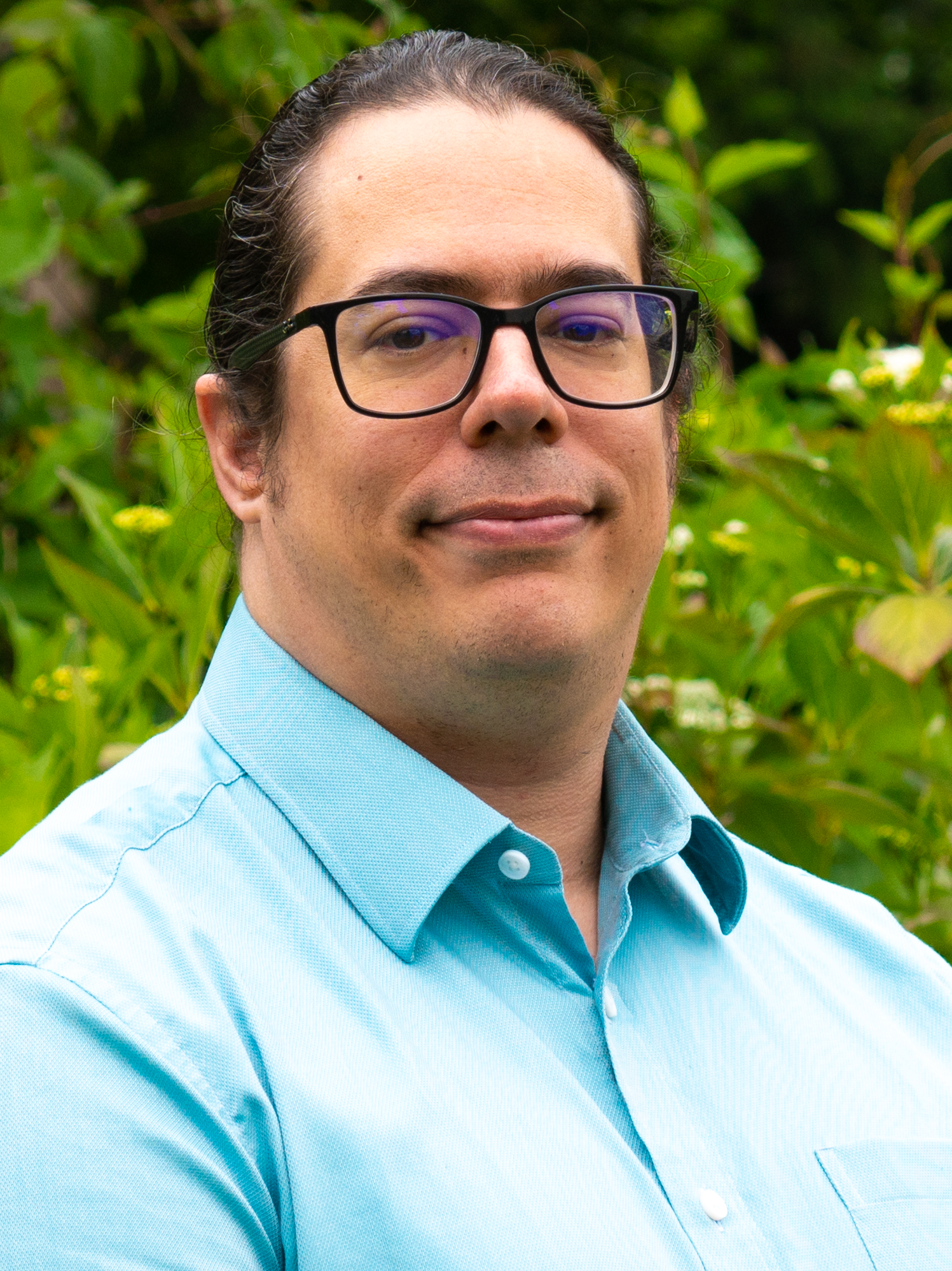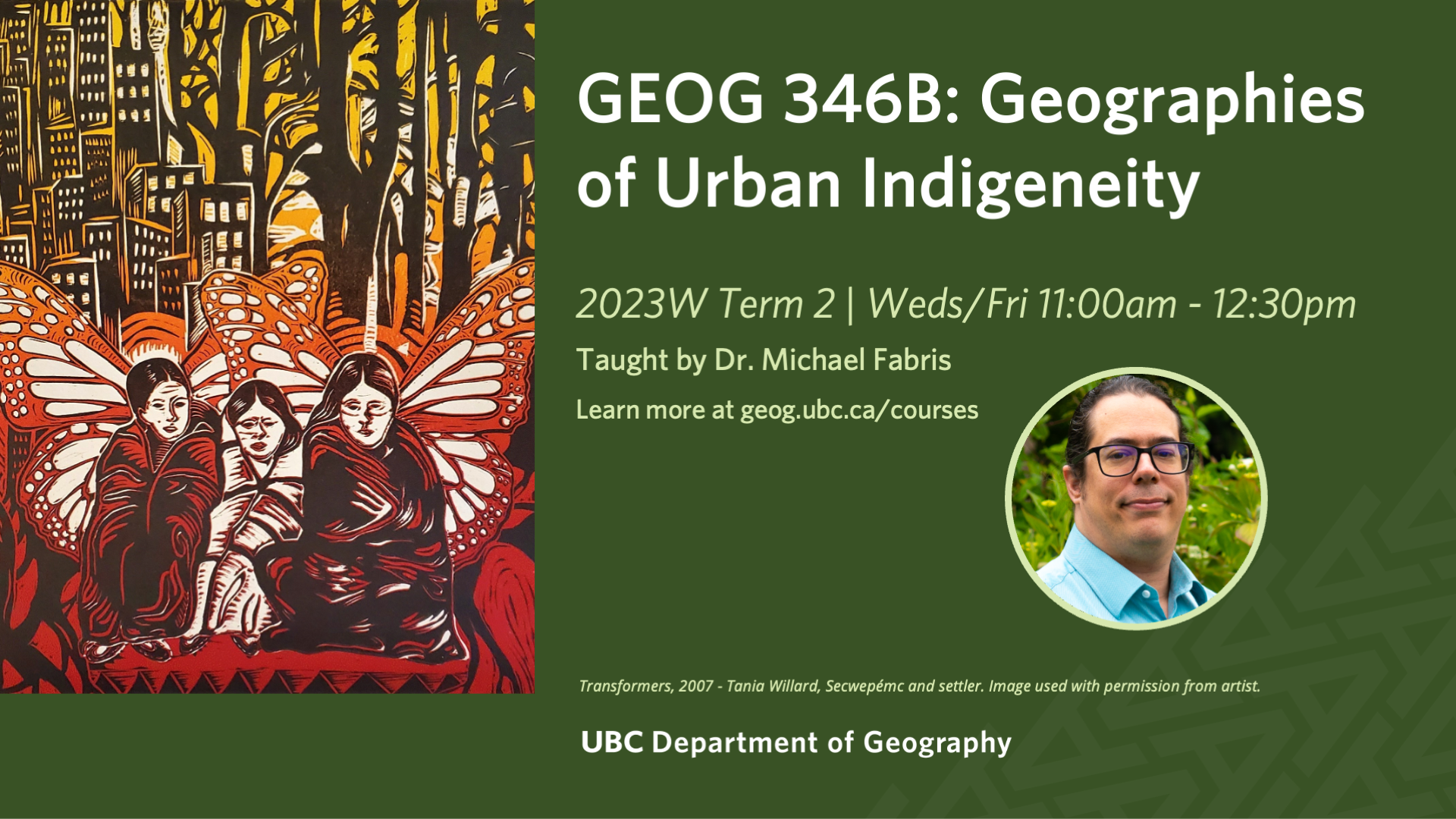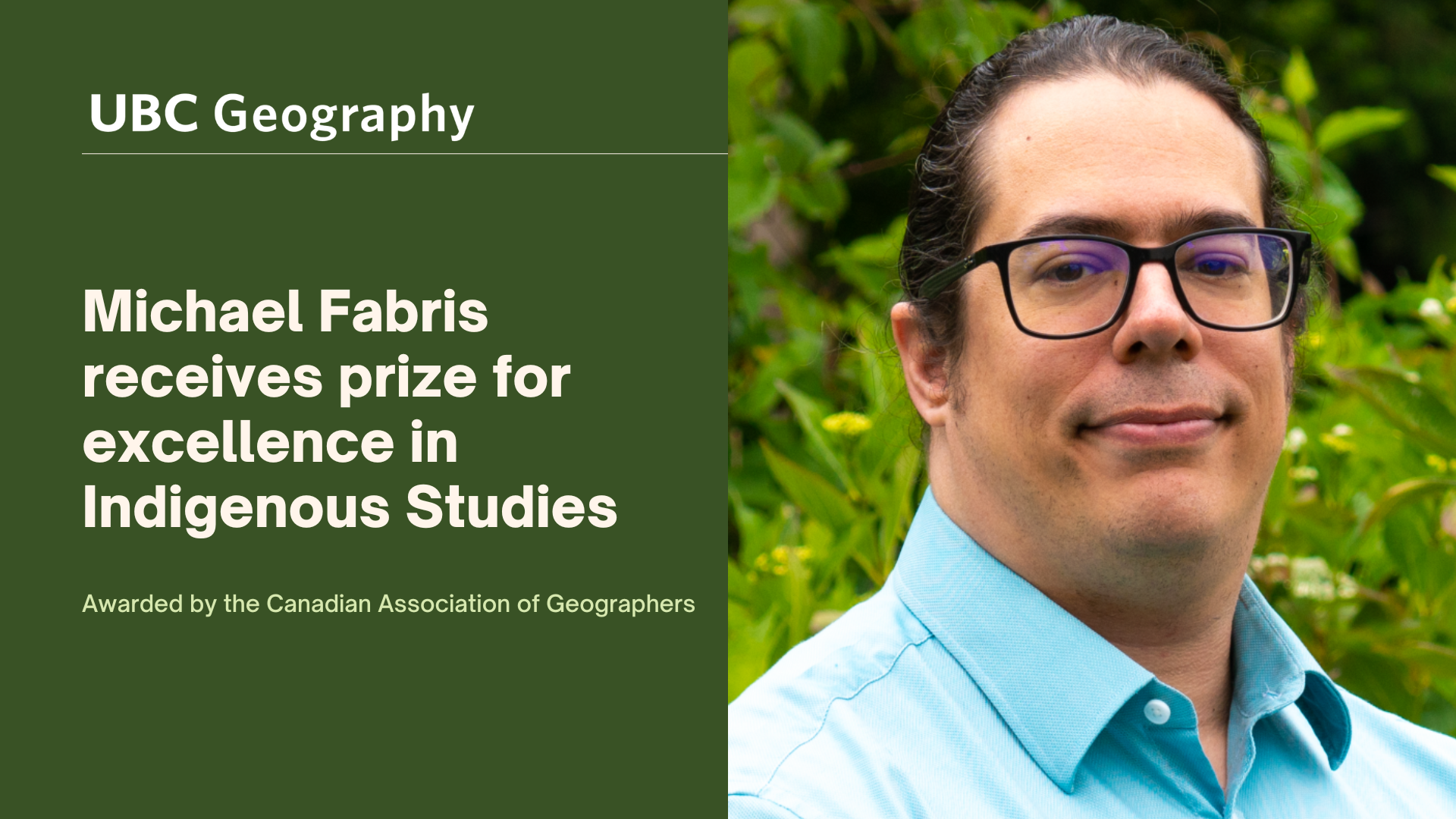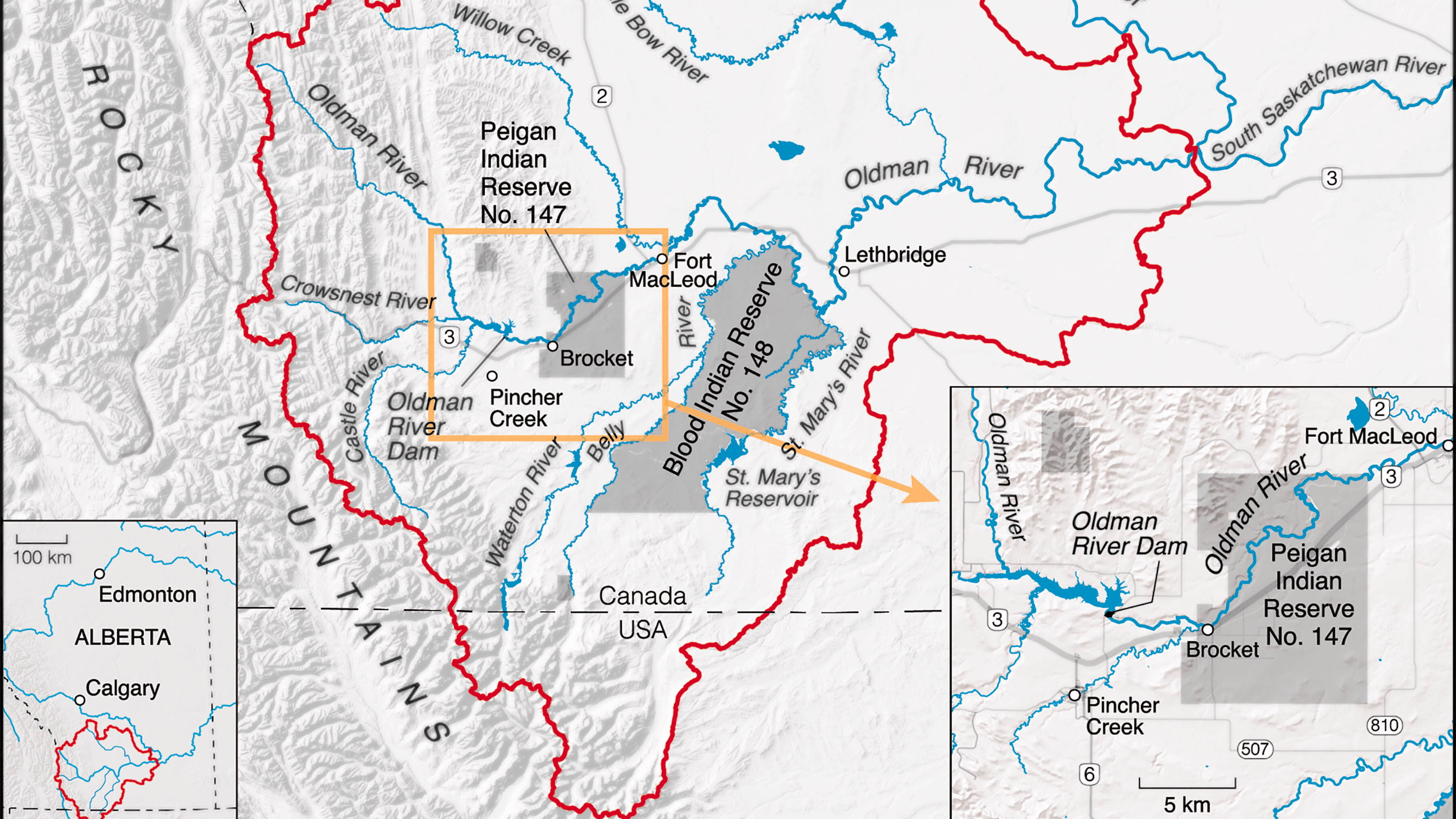Michael Fabris
Research Area
About
I am of Blackfoot and mixed European descent, affiliated with the Piikani Nation, located within Treaty 7 territory. I was born and raised in the Metro Vancouver area, and am proud to also be part of the Urban Indigenous community here in East Vancouver, on unceded Tsleil Waututh, Squamish, and Musqueam territory, where I currently reside with my son.
As an Indigenous Geographer, my research focuses on processes of dispossession in settler colonial contexts, and the Indigenous social movements that seek to challenge these processes by reasserting Indigenous land and water relationships through their own forms of governance and legal jurisdiction. My own research builds upon existing works within both Geography and Indigenous Studies, addressing the relationship between law, settler colonialism, and assertions of Indigneous law.
Teaching
Research
My current research focuses on the Piikani Nation’s attempts to challenge the construction of the Oldman River Dam, located directly west of the Piikani Nation’s primary reserve. Initially proposed in 1976 and completed in 1991, the dam faced multiple forms of opposition by Piikani members. For this research, I was honoured to interview several Piikani elders, activists, and legal experts that were involved in the various attempts to challenge the construction of the dam. Through this project, I explore how dam opponents mobilized different conceptions of law in attempts to express Piikani relationships with the Oldman River (Napi-Tahta), demonstrating how Indigenous forms of jurisdiction articulate with Canadian legal regimes, such as the reserve and band council systems.
Prior to the beginning of the COVID-19 pandemic, I was also conducting research on the possibilities and limits of asserting Indigenous jurisdiction within Canadian cities. This research included in-depth interviews with members of Vancouver’s Indigenous community to explore various forms of Indigenous resurgence in urban environments, and the ways these urban practices of resurgence constitute assertions of Indigenous jurisdiction. I look forward to resuming this research once it is safe to do so.
Publications
2025
Fabris, M. (2025). Blackfoot legal traditions, treaty-making, and non-territorial forms of settler jurisdiction? Niitsitapi oral histories of Treaty 7. Environment and Planning D: Society and Space, 02637758241307556. https://doi.org/10.1177/02637758241307556
Schwartzman, G., Braun, B., Jasper, S., McCarthy, J., Fabris, M., & Ritts, M. (2025). Book review forum: A Resonant Ecology. Max Ritts. Durham, NC: Duke University Press, 2024. The AAG Review of Books, 1–12. https://doi.org/10.1080/2325548X.2025.2538882
2024
Fabris, M. (2024). Indigenous geographies and the (un)reconcilability of academia? Challenges for making geography a more hospitable space for Indigenous scholars. In G. Chen & L. Eaves (Eds.), How to Foster DEI & Justice in Geography (pp. 82–94). Edward Elgar Publishing Ltd.
2022
Fabris, M. 2022. Articulating Indigenous law as ‘environmental protection?’ The Piikani Nation and the Oldman River Environmental Assessment Review Process. Annals of the Association of American Geographers 2023 Special Issue on Race, Nature, and the Environment. doi: 10.1080/24694452.2022.2142087
2020
Fabris, M. Singh, J. Pasternak, S. Lister, M. Chua, C. and N. Estes. 2020. Author Meets Critics: Nick Estes’ “Our History is the Future.” Environment and Planning D: Society and Space (Online Magazine). https://www.societyandspace.org/articles/our-history-is-the-future-review-by-mike-fabris
Awards
Robin P. Armstrong Memorial Prize for Excellence in Indigenous Studies, 2023
UBC Killam Doctoral Scholarship, 2017-2019
SSHRC Joseph-Armand Bombardier Canada Doctoral Award, 2018-2021
Decolonizing Water SSHRC Partnership Grant Doctoral Fellowship, 2016-2020



